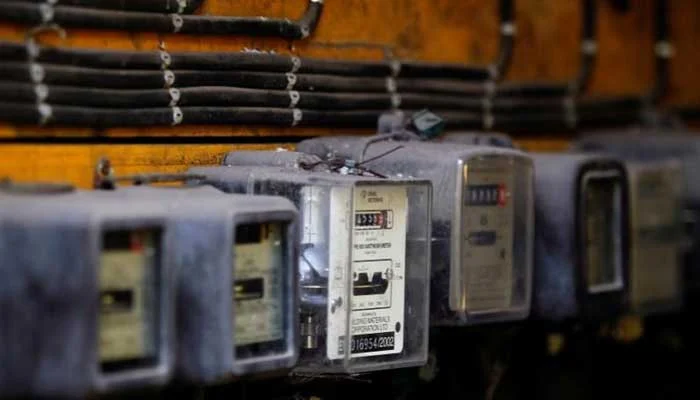- Govt will have to notify increase in gas rate by 45-50%.
- It must also increase power tariff by Rs3.50-Rs4 per unit.
- Measures crucial for ensuring IMF funds come through.
ISLAMABAD: Pakistan will have to notify an increase in gas sale price by 45-50% and electricity base tariff by Rs3.50 to over Rs4 per unit for the FY2023-24 prior to the International Monetary Fund’s (IMF) Executive Board’s meeting, which is due on July 12.
The increase in energy prices will pave the way for the $3 billion programme under the Stand-By Arrangement (SBA) agreed with the IMF at the staff level, a senior official of the energy ministry told The News.
“The Oil and Gas Regulatory Authority (Ogra) on June 2 announced an increase of 50% (Rs415.11 per MMBTU) for the consumers of Sui Northern Gas Pipeline Limited (SNGPL), pushing the subscribed gas price up to Rs1,238.68 per MMBTU,” the official said.
“The regulator also increased the gas price by 45% (417.23 per MMBTU) for the consumers of Sui Southern Gas Company Limited (SSGCL) for 2023-24. However, the government is yet to notify the increase in the gas price for the financial year 2023-24.”
“The SNGPL still has the previous year’s accumulative shortfall of Rs560.378 billion up to FY23, while Sui Southern has a shortfall of Rs97.388 billion,” he added.
Last time, the federal government notified the category-wise gas sale prices to increase from January 1, 2023. Under the government’s existing policy, high-end consumers are providing the cross-subsidy to low-end consumers.
“The government is most likely to continue the policy under which high-end consumers will pay the gas price for the low-end consumers also from July 1, 2023.”
The whole energy sector, he said, is in the trap of circular debt of over Rs4,300 billion (Rs1,700 billion in the oil and gas sector and Rs2,600 billion in the power sector).
The IMF’s top mandarins want Pakistan authorities to make the energy sector viable and sustainable by increasing the rebase tariff for the financial year 2023-24.
NEPRA may announce soon the rebase tariff determination by Rs3.5- to over Rs4 per unit, which is to be effective from July 1, 2023. After that, the government would notify it.
However, the most worrying part of the base tariff is the capacity charges payments, whose share in the base tariff has increased to 63% in the next financial year from 57% in the outgoing fiscal.
The end consumers are expected to pay Rs1.3 trillion to 1.5 trillion just in the head of capacity payments in the financial year 2022-23 ending on June 30, well-placed officials in the Power Ministry told The News.
Next year, the volume of capacity payments, the officials said, is to surge by another Rs1 trillion, jacking it up to Rs2.5 trillion. This is how the contribution of capacity payments alone in the base tariff would increase up to 63%.
“The country’s installed capacity has surged up to 44,000 MWs, according to the officials but the economic survey for 2022-23 says it stands at 41,000 MWs. Next year about 1,500 MWs would be added and this is how more capacity charges end consumers will pay.”
The base tariff is the Nepra-determined tariff, which stands at Rs24.80 per unit for the financial year 2022-23.
However, the government has notified it at Rs24 per unit. If the required increase is added, then the base tariff for FY24 will go up to close to Rs29 per unit.
However, the base tariff doesn’t include surcharges, taxes and duties, as the imposition of taxes, duties, and surcharges is the sole prerogative of the federal government.
The power purchase price (PPP) constitutes 90% of the tariff, out of which capacity charges payments share will be 63%.
At present, the power sector has virtually become unsustainable as its circular debt has swelled to over Rs2.5 trillion, and the government cannot pay the amount to powerhouses against the electricity it purchases from them, high system losses, less recovery, and inadequate budget subsidy.

 Latest News2 days ago
Latest News2 days ago
 Entertainment2 days ago
Entertainment2 days ago
 Business2 days ago
Business2 days ago
 Latest News2 days ago
Latest News2 days ago
 Latest News2 days ago
Latest News2 days ago
 Latest News2 days ago
Latest News2 days ago
 Latest News2 days ago
Latest News2 days ago
 Latest News2 days ago
Latest News2 days ago























